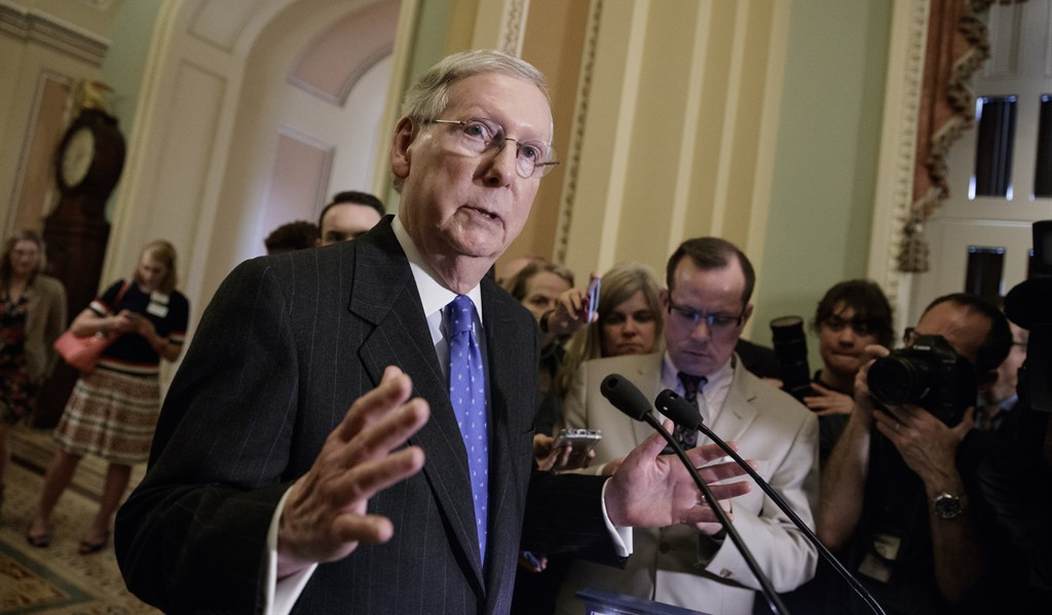While Senate Republicans mull nuking the filibuster rules for Supreme Court nomination, Mitch McConnell (R-KY) said that the 60-vote threshold would be maintained for legislation. The Senate Majority Leader forcefully said that there is not a single member of the Republican caucus who supports ending the filibuster for legislation (via Politico):
McConnell stressed that “there’s no sentiment” among Senate Republicans for overhauling the filibuster on legislation, which typically forces the Senate to compromise and get buy-in from the minority.“Who would be the biggest beneficiary of that right now? It would be the majority, right?” McConnell told reporters. “There’s not a single senator in the majority who thinks we ought to change the legislative filibuster. Not one.”
At the same time, Joel Gehrke at the Washington Examiner also reported on a second nuclear option being considered by Senate Republicans over nominees. They want to cut the post-cloture debate period from 30 hours to eight to avoid the unprecedented delays that Senate Democrats have used against President Trump’s nominees:
Senate Republicans are considering a unilateral change to Senate procedures that would limit the ability of the minority party to drag out debate on executive branch nominees once the Senate votes to end debate on those nominees, known as cloture.Under the current process, voting for cloture on a nominee sets up 30 hours of post-cloture debate, then a confirmation vote. But Republicans are mulling whether to chop that down significantly, possibly as low as eight hours, in order to speed up the process of approving nominees.
[…]
Sen. James Lankford, R-Okla., pitched his GOP colleagues Tuesday on shortening the amount of time that senators can talk about a nominee post-cloture. Lankford wants to cut that time to no more than eight hours, as Democrats have used the 30-hour rule to delay the confirmation of even non-controversial presidential appointees, such as the incoming secretary of agriculture.
[…]
McConnell won't be able to proceed with Lankford's idea if three or more Republicans oppose the move, but the proposal is gaining traction even among old-guard Republicans who have been nervous about making significant changes to how the institution operates.

























Join the conversation as a VIP Member